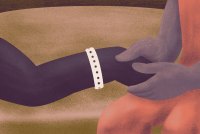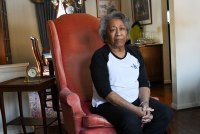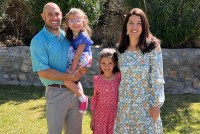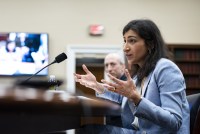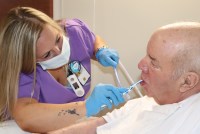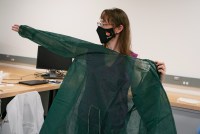Latest Morning Briefing Stories
To Retain Nurses and Other Staffers, Hospitals Are Opening Child Care Centers
More than two years into the pandemic, parents face a child care crisis. That’s why some hospitals are considering starting child care centers to address recruitment and retention troubles.
Hospices Have Become Big Business for Private Equity Firms, Raising Concerns About End-of-Life Care
Private equity firms are seeing opportunities for profit in hospice care, once the domain of nonprofit organizations. The investment companies are transforming the industry — and might be jeopardizing patient care — in the process.
Nursing Homes Are Suing the Friends and Family of Residents to Collect Debts
Debt lawsuits — long a byproduct of America’s medical debt crisis — can ensnare not only patients but also those who help sick and older people be admitted to nursing homes, a KHN-NPR investigation finds.
Health Insurance Price Data: It’s Out There, but It’s Not for the Faint of Heart
Health insurers and self-insured employer plans are now required to post their negotiated rates for almost every type of medical service. But navigating through the trove of information is no easy task.
Even Well-Intended Laws Can’t Protect Us From Inaccurate Provider Directories
State and federal laws require health plans to offer accurate lists of participating doctors and facilities, but consumers still struggle to get timely appointments with providers.
Parents Become Drug Developers to Save Their Children’s Lives
Families affected by ultra-rare diseases are starting their own companies to speed the development of treatments for their kids, venturing into territory that traditional drugmakers deem too risky.
No-Bid Medicaid Contract for Kaiser Permanente Is Now California Law, but Key Details Are Missing
California Gov. Gavin Newsom signed a bill last month that authorizes a statewide Medicaid contract for HMO giant Kaiser Permanente. But details still need to be worked out in a memorandum of understanding.
Biden’s FTC Has Blocked 4 Hospital Mergers and Is Poised to Thwart More Consolidation Attempts
The president has directed the Federal Trade Commission to carefully consider health industry mergers that may stymie competition and drive up prices. The new Democratic majority appears eager to look beyond traditional hospital consolidations to deals that involve products, services, or staffing.
As Big Pharma Loses Interest in New Antibiotics, Infections Are Only Growing Stronger
Existing drugs still treat most infections. But that has discouraged investment in new drugs that will be needed when — not if —the old ones fail.
Patients With Epilepsy Navigate Murky Unregulated CBD Industry
The FDA has approved a cannabis-derived drug, Epidiolex, to treat some forms of epilepsy. Now people who have other forms of the condition are using over-the-counter CBD products in hopes of taming their seizures. But doctors and patients worry about the unregulated world of CBD, in which product ingredients can be a mystery.
La neumonía adquirida en el hospital está matando pacientes. Aunque es fácil de prevenir
Esta forma de neumonía generalmente se desarrolla cuando bacterias en los dientes “viajan” a los pulmones. Por eso la higiene bucal es esencial en los hospitales.
Hospital-Acquired Pneumonia Is Killing Patients. Yet There Is a Simple Way to Stop It.
Hospital-acquired pneumonia not tied to ventilators is one of the most common infections that strike within health care facilities. But few hospitals take steps to prevent it, which can be as simple as dutifully brushing patients’ teeth.
‘An Arm and a Leg’: One ER Doctor Grapples With the Inequities of American Health Care
This episode is an interview with Dr. Thomas Fisher, author of “The Emergency: A Year of Healing and Heartbreak in a Chicago ER.”
In America, Cancer Patients Endure Debt on Top of Disease
Medical breakthroughs mean cancer is less likely to kill, but survival can come at an extraordinary cost as patients drain savings, declare bankruptcy, or lose their homes, a KHN-NPR investigation finds.
Digital Mental Health Companies Draw Scrutiny and Growing Concerns
Consumers who have trouble getting in to see a therapist are turning to online behavioral health providers that offer quick access. But there’s limited research on their effectiveness.
KHN’s ‘What the Health?’: A Chat With the Surgeon General on Health Worker Burnout
Health workers are not OK, and that poses a threat to anyone who may need health services. That’s the central finding of the latest report from the office of U.S. Surgeon General Vivek Murthy, “Addressing Health Worker Burnout.” This special episode of KHN’s “What the Health?” podcast is a conversation about the report between Murthy and KHN chief Washington correspondent Julie Rovner, which was recorded at the annual research meeting of AcademyHealth in June.
Widely Used Hospital Gowns Show Signs of Exposing Workers to Infection
Isolation gowns are supposed to protect health care workers from splattered bodily fluids. But new studies suggest that too much liquid seeps through some disposable gowns, creating a risk of infection.
Cómo evitar, o deshacerse, de una deuda médica
Más de 100 millones de personas en el país, con o sin seguro de salud, tienen deudas médicas. Saber navegar un complejo sistema de facturación y “trampas” puede ayudar a saldarlas sin caer en bancarrota, o evitarlas.
Big Employers Are Offering Abortion Benefits. Will the Information Stay Safe?
Work-based benefits may expand access to abortion for people who live in areas where the service is unavailable, but experts warn that claiming benefits could create a paper trail for law enforcement officials to follow.
How to Get Rid of Medical Debt — Or Avoid It in the First Place
Medical bills can add stress to the already stressful experience of dealing with a medical crisis. And if you can’t pay those bills, they can linger, wreaking havoc on your financial goals and credit. Here’s how to protect yourself.




